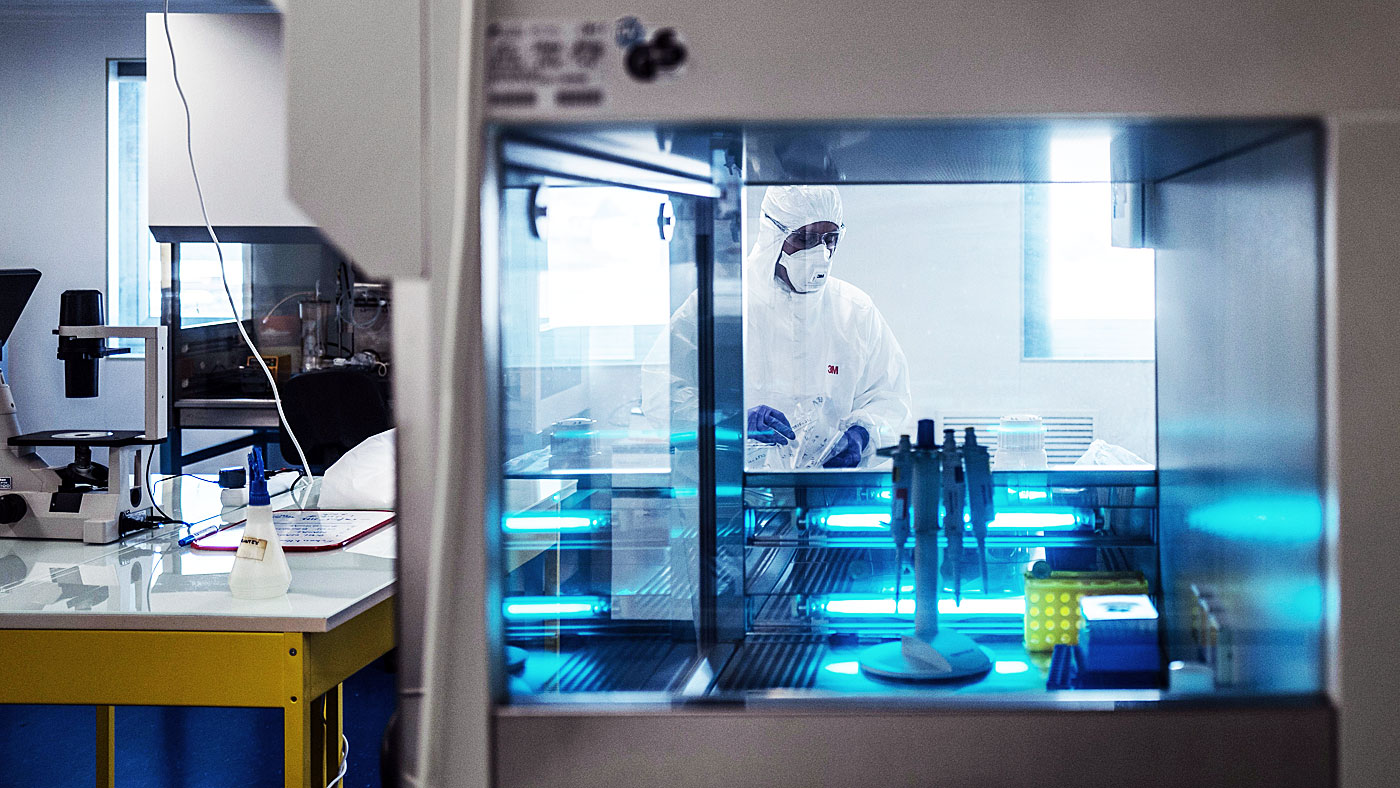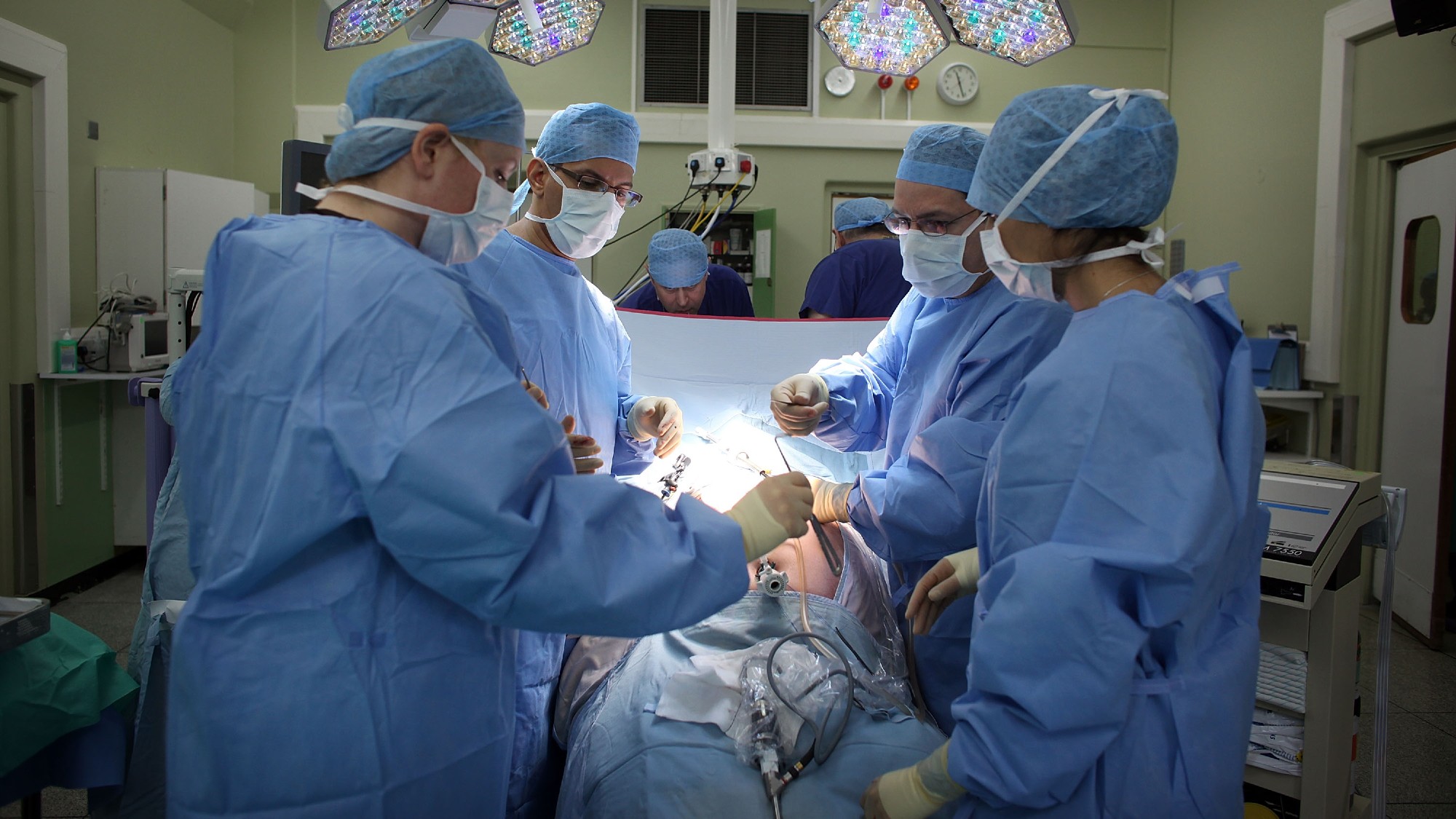Coronavirus: why antibody rates vary so widely from place to place
Tests show that likely levels of immunity range from 68% in parts of New York to less than 1% in India

A free daily email with the biggest news stories of the day – and the best features from TheWeek.com
You are now subscribed
Your newsletter sign-up was successful
Two-thirds of people in some New York communities have Covid-19 antibodies that are likely to provide some level of immunity to the virus, new research suggests.
The newly published data, from one of the companies involved in the US city’s testing programme, has renewed speculation about the reasons for huge variations in infection rates between countries, regions, cities and neighbourhoods.
In the aptly named district of Corona, “a working-class neighbourhood in Queens, more than 68% of people tested positive for antibodies to the new coronavirus”, The New York Times reports. “But at a clinic in Cobble Hill, a mostly white and wealthy neighborhood in Brooklyn, only 13% of people tested positive.”
The Week
Escape your echo chamber. Get the facts behind the news, plus analysis from multiple perspectives.

Sign up for The Week's Free Newsletters
From our morning news briefing to a weekly Good News Newsletter, get the best of The Week delivered directly to your inbox.
From our morning news briefing to a weekly Good News Newsletter, get the best of The Week delivered directly to your inbox.
How do the figures compare?
The worst-affected areas of New York “appear to show a higher antibody rate than anywhere in the world”, based on the new data, says The Telegraph.
However, the tests were not carried out on a random sample of the population but rather volunteers, who may have stepped forward precisely because they believed they had been exposed to the new coronavirus.
Nevertheless, parts of Italy have recorded similar results.
A free daily email with the biggest news stories of the day – and the best features from TheWeek.com
“More than half the residents tested in Italy’s northern province of Bergamo have Covid-19 antibodies,” Reuters reported in early June. The results were based on a random sample that researchers believe was “a reliable indicator of how many people had been infected in the province”.
In Spain, by contrast, a study conducted at around the same time found that just 5.2% of people had the antibodies. And nationwide testing in India discovered antibodies in only 0.73% of the population.
Meanwhile, a random testing programme by the UK Office for National Statistics found antibodies in 17.5% of Londoners. The figure fell to 10% in the east of England, 12% in the northwest, and between 4% and 8% in the rest of the country.
What lies behind the variations?
The main reason that antibodies are distributed so unequally is that the coronavirus pandemic has struck some areas far more acutely than others.
In Italy, for example, the north and east of the country suffered one of the world’s worst outbreaks, while the southern half of the country was largely unaffected.
Chance may have played a part in where the infection took hold, but how quickly the outbreaks spread is likely to have been influenced by living conditions, transport networks and government policies.
“There are reasons parts of Queens were hit so hard,” says The New York Times. “Homes in Elmhurst and parts of Corona are especially crowded,” which led to higher rates of transmission among family members, a “leading driver of the disease’s spread”.
What does this mean for herd immunity?
Since the beginning of the global pandemic, experts have voiced scepticism about hopes of ending the pandemic by achieving herd immunity. Proponents of the approach claim that once between 60% and 70% of a population has had the new coronavirus, the infection will no longer be able to spread.
But while “previous research into other coronaviruses has indicated that antibodies confer immunity”, scientists have not established beyond doubt that the same applies with Covid-19, says CNBC.
“The accuracy of the antibody tests is not fully known,” adds The New York Times. “Nor is the extent of immunity conferred by antibodies or how long that immunity lasts.”
If antibodies are short-lived or offer less-than-total protection, testing for their presence may lead researchers to overstate levels of immunity in the worst-hit areas.
However, some scientists believe antibody tests alone may underestimate how many people have at least partial protection against Covid-19.
Studies in Sweden and Germany have found that large numbers of people with no antibodies specific to the new coronavirus still have some level of immune response, perhaps as a result of their bodies having previously tackled other types of infections.
Trials are also under way to determine whether the BCG vaccination may prime the immune system to fight off the virus currently sweeping across the world.
Holden Frith is The Week’s digital director. He also makes regular appearances on “The Week Unwrapped”, speaking about subjects as diverse as vaccine development and bionic bomb-sniffing locusts. He joined The Week in 2013, spending five years editing the magazine’s website. Before that, he was deputy digital editor at The Sunday Times. He has also been TheTimes.co.uk’s technology editor and the launch editor of Wired magazine’s UK website. Holden has worked in journalism for nearly two decades, having started his professional career while completing an English literature degree at Cambridge University. He followed that with a master’s degree in journalism from Northwestern University in Chicago. A keen photographer, he also writes travel features whenever he gets the chance.
-
 Local elections 2026: where are they and who is expected to win?
Local elections 2026: where are they and who is expected to win?The Explainer Labour is braced for heavy losses and U-turn on postponing some council elections hasn’t helped the party’s prospects
-
 6 of the world’s most accessible destinations
6 of the world’s most accessible destinationsThe Week Recommends Experience all of Berlin, Singapore and Sydney
-
 How the FCC’s ‘equal time’ rule works
How the FCC’s ‘equal time’ rule worksIn the Spotlight The law is at the heart of the Colbert-CBS conflict
-
 A Nipah virus outbreak in India has brought back Covid-era surveillance
A Nipah virus outbreak in India has brought back Covid-era surveillanceUnder the radar The disease can spread through animals and humans
-
 How music can help recovery from surgery
How music can help recovery from surgeryUnder The Radar A ‘few gentle notes’ can make a difference to the body during medical procedures
-
 Covid-19 mRNA vaccines could help fight cancer
Covid-19 mRNA vaccines could help fight cancerUnder the radar They boost the immune system
-
 The new Stratus Covid strain – and why it’s on the rise
The new Stratus Covid strain – and why it’s on the riseThe Explainer ‘No evidence’ new variant is more dangerous or that vaccines won’t work against it, say UK health experts
-
 RFK Jr. vaccine panel advises restricting MMRV shot
RFK Jr. vaccine panel advises restricting MMRV shotSpeed Read The committee voted to restrict access to a childhood vaccine against chickenpox
-
 RFK Jr. scraps Covid shots for pregnant women, kids
RFK Jr. scraps Covid shots for pregnant women, kidsSpeed Read The Health Secretary announced a policy change without informing CDC officials
-
 New FDA chiefs limit Covid-19 shots to elderly, sick
New FDA chiefs limit Covid-19 shots to elderly, sickspeed read The FDA set stricter approval standards for booster shots
-
 RFK Jr.: A new plan for sabotaging vaccines
RFK Jr.: A new plan for sabotaging vaccinesFeature The Health Secretary announced changes to vaccine testing and asks Americans to 'do your own research'